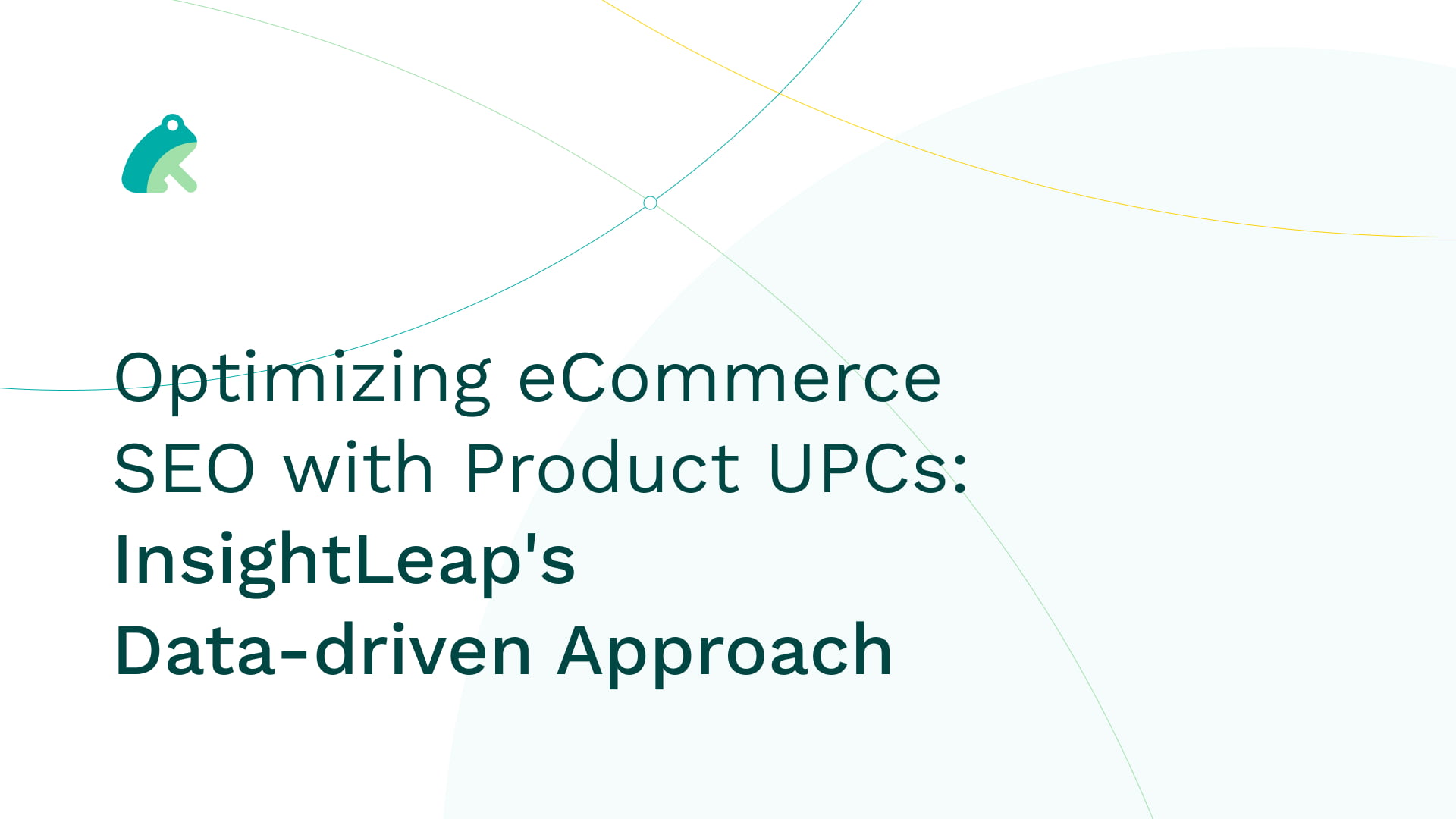Optimizing eCommerce SEO with Product UPCs: InsightLeap’s Data-driven Approach
May 3, 2025
Standing out from the crowd in the eCommerce world and driving organic traffic to your online store is crucial. One often overlooked aspect of eCommerce SEO is leveraging product Universal Product Codes (UPCs) to enhance visibility and improve search engine rankings. In this article, we explore how InsightLeap, a leading data analytics and consulting firm, utilizes a data-driven approach to optimize eCommerce SEO using product UPCs.

The Power of Product UPCs
UPCs are standardized barcodes assigned to products for identification and tracking purposes. Each unique UPC carries valuable information about a product, including its manufacturer, brand, and specific attributes. Leveraging product UPCs in eCommerce SEO offers several benefits. It helps search engines better understand product data, enhances search result relevancy, and improves the overall user experience by providing accurate and specific product information.
InsightLeap's Data-driven Approach
InsightLeap specializes in data analytics and leverages its expertise to unlock the potential of product UPCs for eCommerce SEO. By analyzing vast amounts of product data, InsightLeap helps eCommerce businesses harness the power of product UPCs to identify which of your products should you drive organic traffic and improve search engine rankings for. This data-driven approach ensures that SEO efforts are focused on the most relevant and impactful product attributes.
Optimizing Product Descriptions and Meta Tags
InsightLeap analyzes product UPCs to identify key attributes that can be used to optimize product descriptions and meta tags. By extracting relevant information such as product names, features, specifications, and variations from UPCs, InsightLeap assists eCommerce businesses in creating keyword-rich descriptions and meta tags. This optimization improves the visibility of products in search engine results pages, leading to increased organic traffic and better user engagement.
Enhancing Keyword Research and Targeting
Through product UPCs, you are provided insight containing valuable keywords that can be incorporated into eCommerce businesses' keyword research and targeting strategies. InsightLeap's data analysis enables the identification of high-value keywords associated with specific product categories and UPCs. By leveraging these keywords in website content, metadata, and other SEO elements, eCommerce businesses can attract targeted traffic, improve relevancy, and increase conversions.
Improving Internal Linking Structure
InsightLeap's data-driven approach also helps optimize the internal linking structure of eCommerce websites. By analyzing the relationships between product UPCs and categories, InsightLeap assists businesses in creating a logical and well-organized site structure. This optimization improves website navigation, enhances user experience, and enables search engines to better crawl and index product pages, leading to improved search rankings.
Monitoring Performance and Iterative Improvement
InsightLeap's collaboration extends beyond initial optimization efforts. Through data-driven insights, eCommerce businesses can identify trends, track keyword rankings, and enables you to refine their SEO approaches. This iterative improvement cycle ensures that eCommerce websites stay ahead of the competition and maintain long-term search engine visibility.
Wrap-up
Leveraging product UPCs for eCommerce SEO can significantly impact the visibility and success of online businesses. InsightLeap's data-driven approach enables eCommerce businesses to unlock the potential of product UPCs, optimize website content, improve keyword targeting, enhance internal linking, and leverage user-generated content. By partnering with InsightLeap, eCommerce businesses can harness the power of product UPCs to achieve better search engine rankings, drive organic traffic, and ultimately increase conversions and revenue.